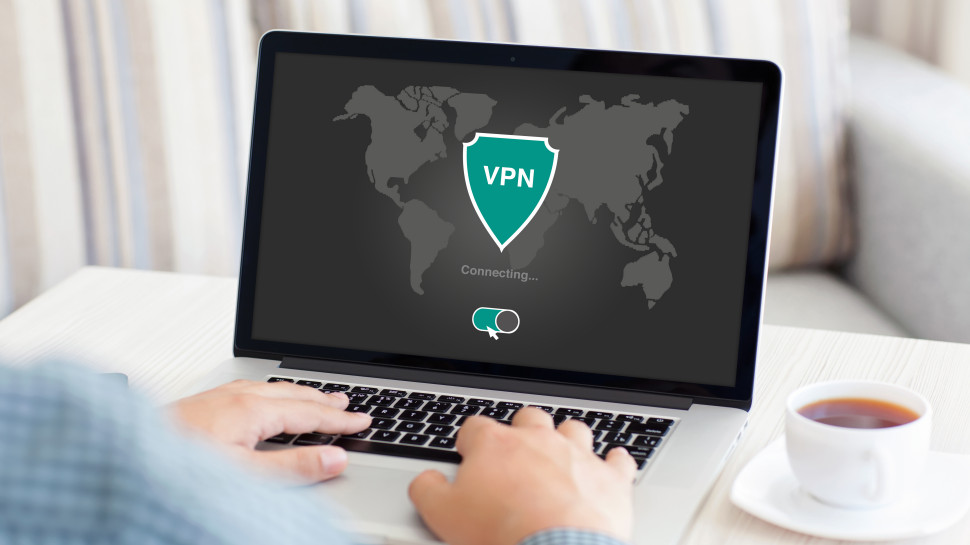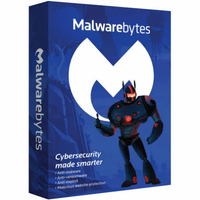Does a VPN protect you from viruses?
A VPN won't keep you safe from malware

You've probably heard the word VPN before. And thus you most likely know that a VPN is one of the best online safety tool. But if you haven't used a VPN before, you may have a few questions – among them is likely how well a VPN can stop viruses. The short answer is – like it or not – it doesn't.
A VPN, or Virtual Private Network, isn't designed to recognize and block malware – this is the function of antivirus software. But a VPN does help protect you from several internet threats, keeping you safe online, and very often is included as part of a bigger antivirus package. For the unacquainted, here is a quick rundown of both antivirus software and VPN services and why you should be using both.
Malwarebytes Premium is today's best anti-malware tool
Save 25% on your security: Sometimes free software just isn't enough. Malwarebytes Premium is reasonably priced and uses heuristic analysis to identify new strains of malware, cleans up existing infections, helps protect you from phishing scams, and helps stop you downloading further malicious software.
All about antivirus software
The simplest definition of antivirus software is that it's a program that stops malware from infecting your system. Malware is an all-inclusive word to describe every threat to your computer. These include viruses, ransomware, phishing schemes, bots, rootkits, and even identity theft.
The best antivirus solutions stop threats in real-time. This means, while you are online, the antivirus recognizes a malicious file and stops your computer from downloading it. It will also use browser tools, usually as an extension, to block websites the program knows harbors threats to reduce your risk of becoming infected.
There is basic antivirus software that doesn't use real-time protection. Usually, these are free antivirus programs. Instead, it waits for the file to open before snatching the threat, placing it in quarantine, and scrubbing your system clean. While this is a legitimate way of stopping malware, there is a bit of a risk that something will sneak through.
The most common threats to get through antivirus software are zero-day threats. These viruses are so new they aren't listed on the malware lists antivirus apps use to identify threats. When this happens, most antivirus software will eventually figure out what's going on and will round it up, quarantine, and scrub your computer clean.
If the antivirus program doesn't recognize the threat in time, it can infect your computer. In this case, it's best to use a malware removal tool, like Malwarebytes, to get rid of it.
Are you a pro? Subscribe to our newsletter
Sign up to the TechRadar Pro newsletter to get all the top news, opinion, features and guidance your business needs to succeed!

VPNs and why you need one
A VPN acts like a shield while you are online. This prevents trackers from logging your internet usage history including the websites you access, videos you watch, and the products you buy. Most of this information collected is used to create targeted ads or improved user experiences (we call these cookies).
A company will often use online histories to remember what you looked at the last time you visited the site. This information is used to autofill some text fields, or entice you with articles or products that are similar to your browser history. It's also a great way for identity thieves to grab personal information.
Using a VPN creates a unique and new online identity every time you log in, so it's pretty impossible for your online movements to be traced back to you or your computer.
Many countries let you access information on websites within that location only if your computer's IP address is also in that country. For example, if you travel overseas for business and want to watch the latest episode of your favorite Netflix show, you will be blocked from seeing it because your laptop will show you outside your normal viewing area, even if you're up-to-date with your subscription.
A VPN lets you choose a server in the countries you need to be in to access online content, and will create a temporary IP address, so you can access geo-restricted content.
Another important function of a VPN is torrenting, or P2P transferring of data. When you send information through the internet, it is vulnerable to swipers and hackers. To cut down on this happening, a VPN will scramble the information – known as encryption – before sending it. This way, if is it intercepted, the criminal won't be able to decipher it.
The benefits of all-in-one antivirus
Antivirus software is typically offered in tiers. This means the cheapest solution typically just stops malware. But as you invest a little more, you get additional security tools that sure up your overall system, keeping you safe from even more potential threats.
It isn't uncommon to find antivirus software that includes a firewall, password manager, safe banking tools, parental controls, and even a VPN. A program that offers all of these services in one subscription package is referred to as an all-in-one.
One example of an all-in-one program is offered by Malwarebytes. Malwarebytes Premium + Privacy VPN combines its antivirus solution with its VPN and costs about as much as a monthly subscription for a standalone VPN service.
While both an antivirus and VPN are important tools to have, investing in an all-in-one program that includes both is an easy and affordable way to get the most protection for all your electronic devices.
The antivirus side of Malwarebytes uses real-time protection to stop threats, including ransomware. It comes with a firewall and password manager. It also includes Browser Guard that stops scams that pop up online, on top of monitoring websites for any potential threats. And if you do happen to become infected, you have access to Malwarebytes' amazing malware removal tools.
Malwarebytes' VPN has over 500 servers in 30 countries and will work on your Windows and Mac computers, and Android and iOS mobile devices. When you click to connect to the VPN, the client will automatically connect you to the closest and fasted server, but you do have the option to manually choose the server you want to use.
One great feature of this VPN is a kill switch. This means, if your connection is dropped or interrupted in some way, VPN will block your information from being accessed until the VPN connection is reestablished.
While both an antivirus and VPN are important tools to have, investing in an all-in-one program that includes both is an easy and affordable way to get the most protection for all your electronic devices.

Nikki is a commissioned editor for Future Plc covering internet security including antivirus and VPN. With over 18 years of research and writing experience, and 11 years of testing and reviewing internet security solutions, Nikki knows how to dive deep to get the information consumers need to make better buying decisions. She is also a mom to 10 children, and personally uses many of the products she reviews to ensure the safety of her own family.
